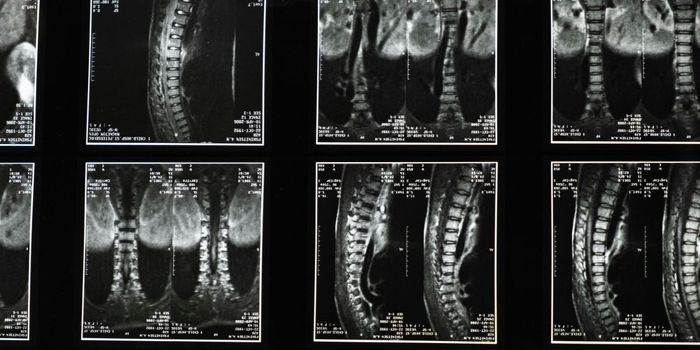Eye Scans May Indicate Early Signs of Alzheimer's
Researchers from the University of California San Francisco have found that retinal scans can detect changes in blood vessels that may indicate early signs of Alzheimer’s disease.
Former studies in mice have found that the presence of a variant of the APOE gene, known as APOE4, is the most prevalent genetic risk factor for Alzheimer's. The gene variant affects blood capillaries in the brain, which are responsible for delivering nutrients and oxygen throughout, as well as disposing of waste and policing immune responses. Damage to these vessels causes problems including protein build-up and cognitive decline.
As technology is not currently advanced enough to visualize individual capillaries in living peoples brains, the researchers decided to investigate those in the eye. They used an advanced retinal imaging technique known as optical coherence tomography angiography (OCTA) to look inside the eyes of 272 participants with and without APOE4 mutations.
From the scans, the researchers found that those with APOE4 tended to have reduced capillary density and that this increased with age. The team then compared the abnormalities seen in OCTA scans of retinal capillaries to measurements of blood flow throughout the brain, as measured via MRI. They found that those with higher retinal capillary density also had more blood flow in the brain.
Lastly, the researchers looked to participants who had previously undergone PET scans of beta-amyloid, a protein linked to Alzheimer’s disease. They found that capillary density did not differ between groups with or without amyloid plaques. This, according to the researchers, means that capillary abnormalities are likely not caused by beta-amyloid plaques and that at most, their relation is indirect.
The researchers now plan on getting a better understanding of blood vessel dysfunction at a molecular level to help detect early signs of Alzheimer's disease before significant damage occurs. Their research may also provide new gateways for vascular targets for early treatment of the disease.
"This is just the beginning," says Fanny Elahi, lead author of the study. "But the implications for early detection and possible intervention can be significant in combatting Alzheimer's disease and other neurodegenerative disorders. It's much harder to regenerate neurons than to stop their degeneration from happening in the first place. Similar to cancer, early detection can save lives,"
Sources: EurekAlert, Alzheimer’s Association









